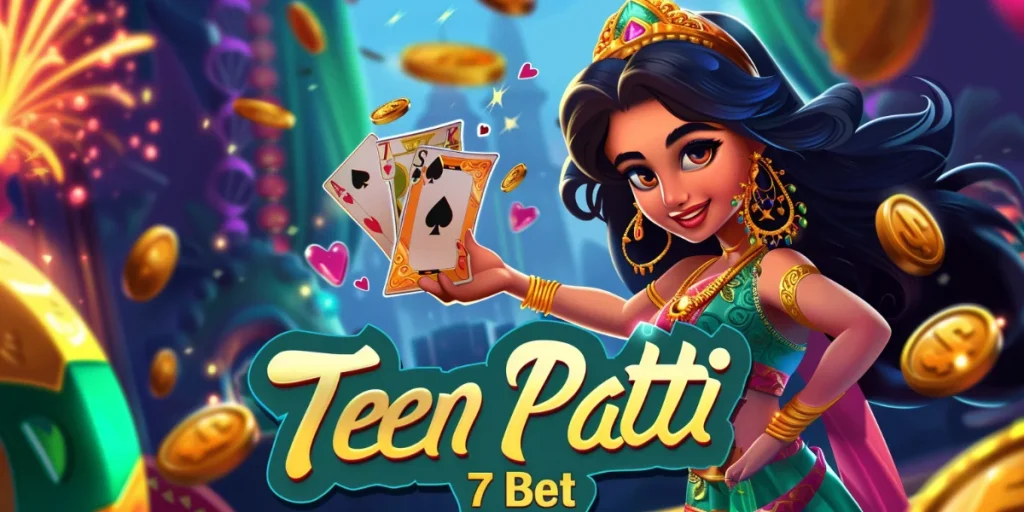Gambling has been popular in India for several centuries. Teen Patti, one of the many games in the country, has captured the hearts of many.
Although the game is similar to the famous three-card poker played in other parts of the world, Teen Patti is one of India’s most indigenous games. As part of the country’s traditional assets, the game has been featured in many Bollywood movies as family-friendly, where anyone can become a teen patti master regardless of age. This has earned the game its reputation as the ideal card game at family gatherings, tournaments, and even festivals like Diwali.
Over the last few years, the iGaming industry has expanded its reach, making more games accessible to millions of Indians at little cost. With the convenience of playing from the comfort of their homes and the accessibility of various teen patti versions, many bettors and casinos have further blurred the boundaries between legal and illegal gambling in the country.
This article identifies the legal problems of Indian teen patti. It also highlights the grey areas between the law and teen patti gambling. Take a look.

The Legal Dilemma of Teen Patti
With the growing popularity of various versions of the teen patti game, many legal issues have been identified in both the casinos and players. Key aspects of this issue are:
Responsible Gambling
Gambling can generally have a subtle but long-term effect on the finances and health of frequent players. Thus, responsible gambling identifies issues that affect the players’ overall well-being. This includes:
- Underage gambling: Gambling laws in India vary by state. However, the consensus on the legal gambling age is between 18 and 21. While age limits are easily verifiable at physical casinos, online casinos have little to no age verification measures. Hence, many underage gamblers frequently visit these iGaming platforms. Since teen patti rulesare straightforward and the game is generally regarded as a household game, these young gamers unconsciously expose themselves to psychological and financial risks.
- Gambling addiction: The problem gambling prevalence rate in India is 7.4%. Although teen patti is generally a low-reward game because of its affordable bets, the game is intriguing enough to cause addictive gambling behaviour. The small pockets of bets now and again can grow into gambling addiction.
To address these issues, the concerned regulatory bodies must incorporate strict measures as the basic requirements of responsible gambling. These should include time limits, self-exclusion options, pop-up reminders, limits on in-game purchases, and educational resources.
Fair and Transparent Gameplay
Transparency and fairness are two ingredients for building credible teen patti gaming platforms. The law needs to hold the industry accountable to ethical standards that ensure the games are always fair and transparent. This should include strong security networks and anti-cheating algorithms. There must also be a commitment to closely monitoring and upgrading the software as its customer base expands.
Gambling Marketing
Based on the guidelines of the Advertising Standards Council of India (ACSI), iGaming platforms cannot be advertised on local and national television stations. However, these platforms have found alternative ways to reach their target audience. Popular casino marketing strategies include the following:
- Influencer marketing: With over 32% of the Indian populace registered on various social media platforms, these casinos have found a booming online audience. Hence, social media influencers come in handy in promoting these platforms to their followers.
- Affiliate marketing is a cost-efficient way of publicising a casino. Since casinos pay the affiliates a fraction of the referred player’s spending on the platform, they need only negotiate a sharing formula with the affiliates.
While the ACSI has provided some regulatory oversight of casinos on television, there is no regulatory oversight of online casino advertisements. The law needs to regulate the marketing activities of these platforms, with restrictions on the contents advertised and the target audience.
What Does the Law Say about Teen Patti Gambling?
The current legal and regulatory framework in India doesn’t recognise boundaries between legal and illegal gambling activities. Thus, the legality of online teen patti real money games is subject to the laws of different states.
In Maharashtra and Andhra Pradesh, for example, most forms of online gambling are considered illegal. On the other hand, Madhya Pradesh and Delhi have amended and implemented the provisions of the Public Gambling Act. Goa and Sikkim are two states under the Sikkim Regulation of Gambling (Amendment) 2005 that have legalised some forms of online gambling.
Some other states only allow teen patti on online platforms licensed and regulated under the Public Gambling Act of 1867 and the amended Information Technology Act of 2011. It’s important to note that the Public Gambling Act does not exclusively cover online gambling because, at the time it was drafted, online casinos didn’t exist. The Information Technology Act has also been amended to create provisions for gaming operators outside the shores of India.

Final Thoughts
While the regulatory bodies continue to make efforts to create clear distinctions between gambling sites, players can still play the teen patti game on a licensed platform in their states. However, it’s important that they use a platform that promotes fair play, optimal security, and responsible gaming. 7bet offers all these and more. With the right structure in play, anyone can enjoy their favourite version of teen patti and earn rewards.

7.bet best casino bonus
Claim your bonus
7.BET is the world’s leading independent online gaming authority, providing trusted online casino news, guides, reviews and information since 2012.
Quick Links
contact us
© All Rights Reserved.



